26.09.2024
Driving Estonia’s innovation forward: Insights from top industry leaders
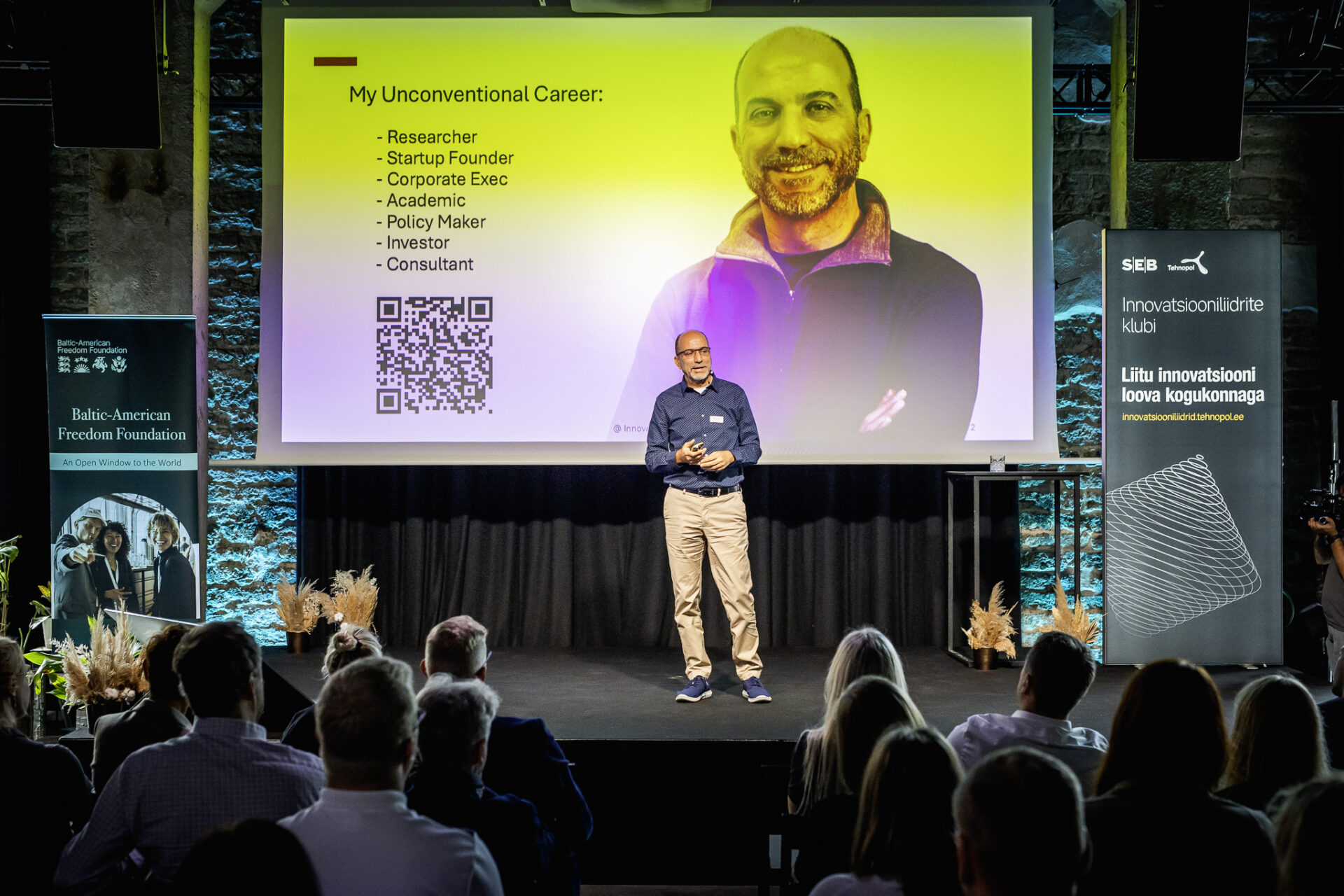
The Innovation Leaders club launched its fifth season with a full house event on the 16th of September, at the noble Fotografiska contemporary museum. Innovation-fueled participants from various fields were invited to the event regardless of their club status, to hear from top specialists on how to move Estonia’s innovation edge forward.
Interesting insights were given by speakers Mihkel Nestor (Chief Economist, SEB Bank), Ats Albre (CEO of Nortal and president of ITL), with the keynote speech delivered by Dr. Maher Hakim, a globally renowned expert in innovation and entrepreneurship, bringing his expertise from the USA and Qatar. The event concluded with a panel discussion with all presenters, discussing the opportunities and limitations of current innovation processes in Estonia and around the world.
With a brief introduction into the main sessions, Martin Goroško (Head of Business Development, Tehnopol) recalled how the Innovation Leaders club was established with the clear intention of bringing together early stage companies with experienced corporations, in order to share best practices and help with innovation development. Fast forward to today, the club is more vibrant than ever with a thriving community and more members joining every season.
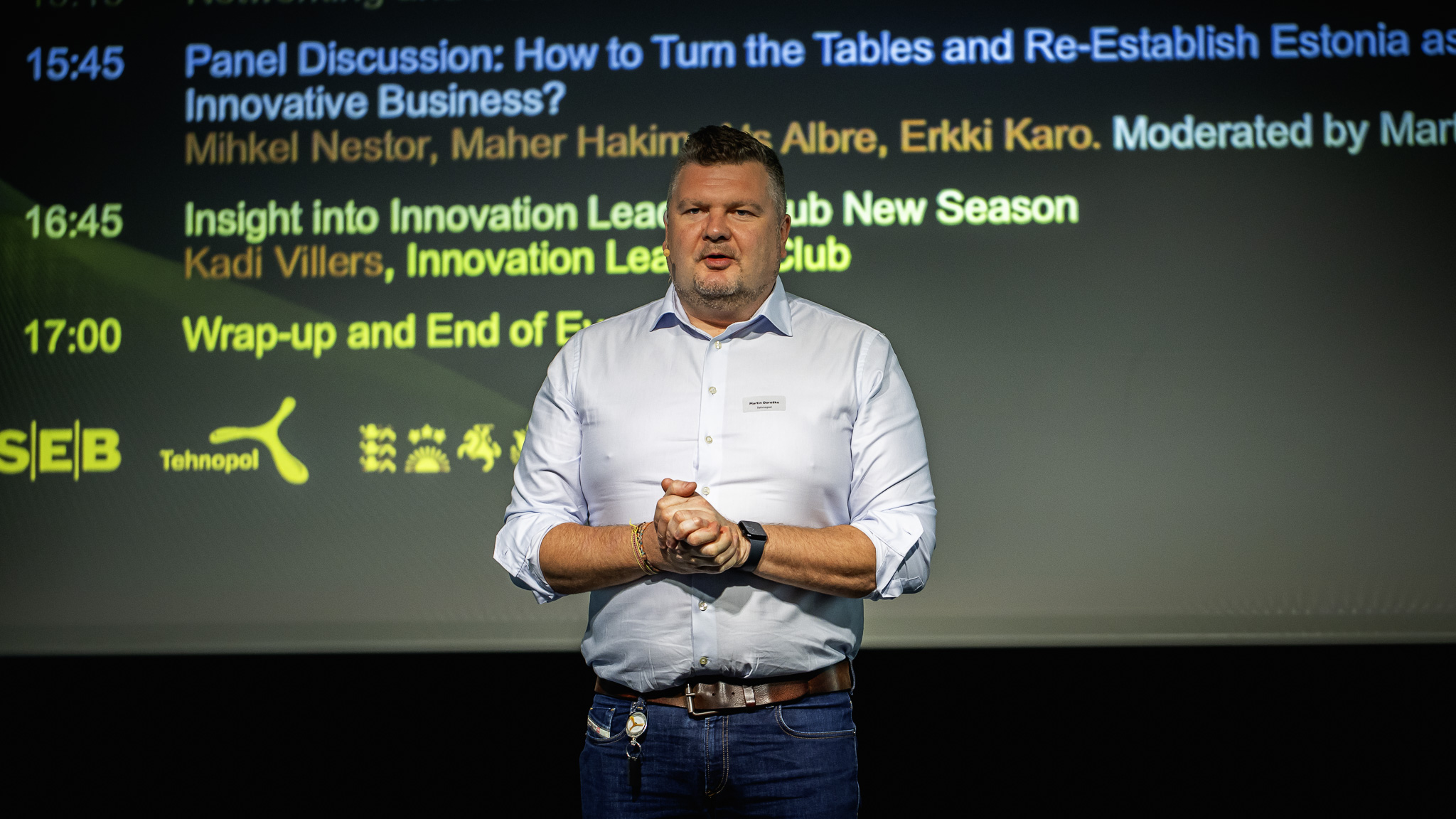
Despite current economical hardships, Estonia is on a positive course
Setting the context for understanding the challenges and future prospects for Estonian companies, Mihkel Nestor gave an overview of the current macroeconomical trends and data. Regarding Estonia’s current economical status, he led with the statement that in general, Estonia has survived the recent crises quite well. As a positive factor, Nestor brought up the additional decline of the Euribor rate, which creates a ripple effect into our society as well – lower interest rates convert to GDP growth for Estonia’s budget.
However, despite the figures seemingly stabilizing, Nestor expressed concern about the consumer confidence index, which has been routinely measured since 1992. “The last time Estonians were that pessimistic was in 1993”, he shared a shocking fact – as the years following the restoration of independence in Estonia are considered to be one of the most chaotic time periods in the country’s history. Nestor described that the reason behind this pessimism is quite clearly the reflection of the common knowledge about the economy being in recession.
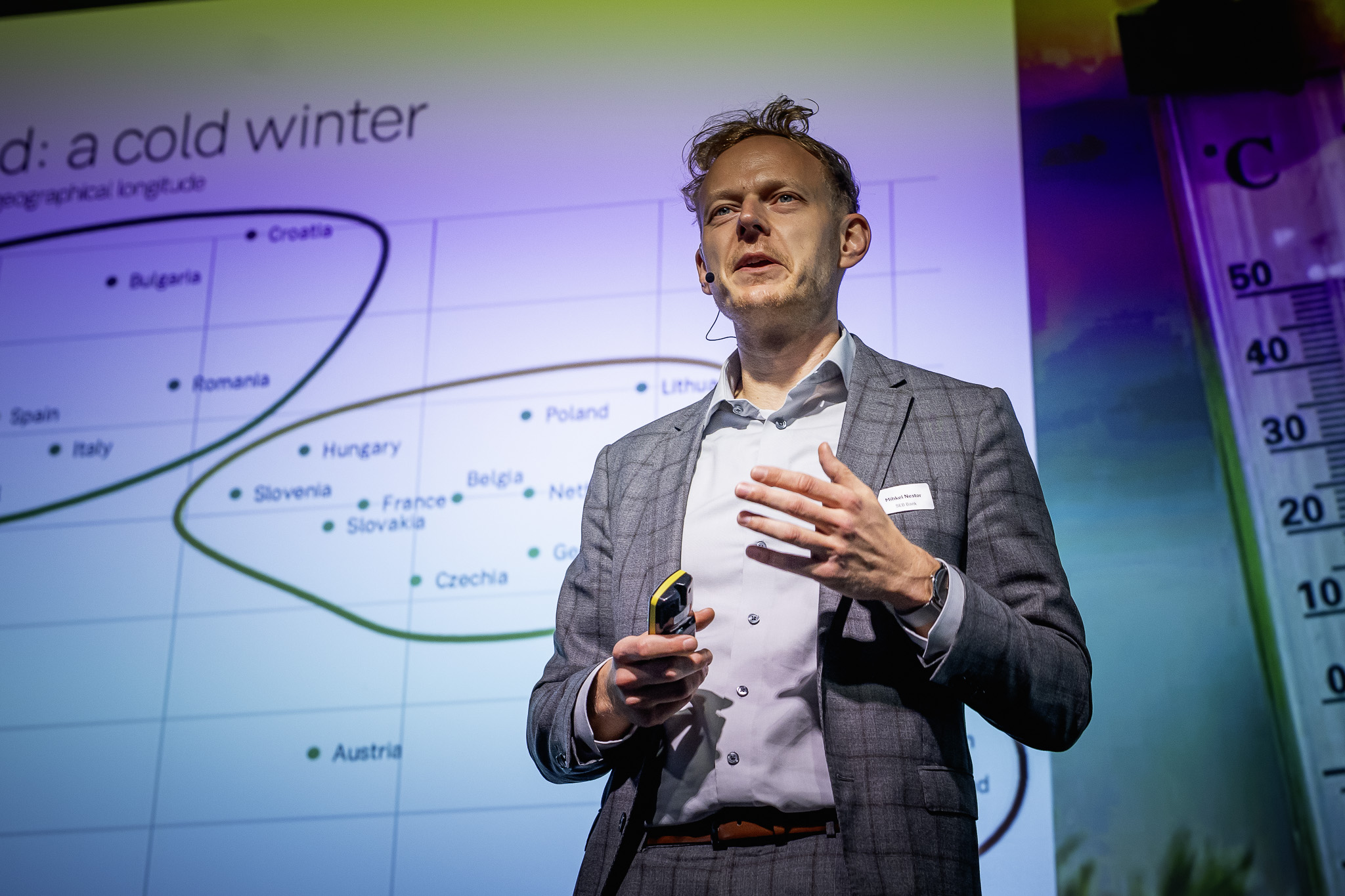
He continued with a more positive note, describing the fact that Estonia’s strength during this recession has been in the labor market. Across the European countries, the first quarter of this year reflected the fact that Estonia had one of the highest employment rates in Europe. In return the wages have also been growing in most sectors. “In some recent years inflation was higher than wage growth, but things have certainly improved,” Nestor continued. “If everybody has a job and the wages are increasing, then calling the situation a crisis is too much in my opinion,” he concluded.
Cross-sectional approach to innovation is the best way forward
The event continued with the keynote speech from Dr. Maher Hakim, a globally renown specialist within innovation development and strategies. He gladly shared his input on Estonia’s innovation position, describing Estonia as being perceived as a rising star. “This is a country “on the move” – leading in startups, in innovation and more.”
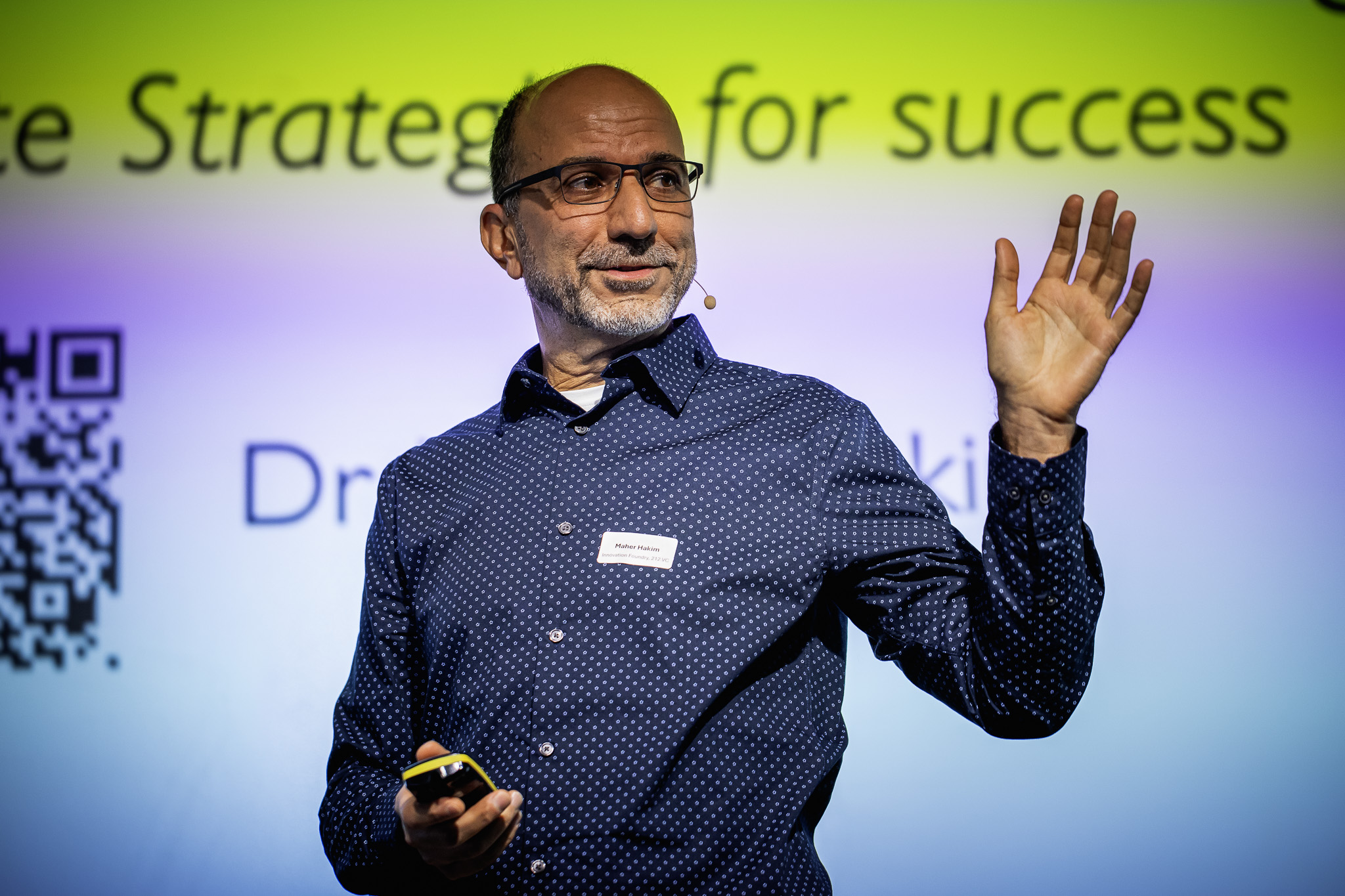
Giving a broader overview of Estonia’s current situation, he confirmed the country to be performing wonderfully regarding the number of startups, unicorns and investments per capita. “However, startups don’t equal innovation,” Hakim stated and introduced the Global Innovation Index, in which Estonia currently ranks on the 16th position. Speculating on how Estonia could achieve a higher ranking, he suggested to first develop an innovation-driven ecosystem, where digital technologies and services can continue to grow. There are two main dimensions that hinder this ranking – business sophistication and human capital in research. “What this mainly means is the linkage between institutions, such as universities-companies-startups, is not significant enough to build an innovation-driven ecosystem,” Hakim clarified.
The startup scene in Estonia is certainly booming, with exports steadily growing in the service industries. As a fellow startup founder, Hakim agreed with the eagerness of startups and their vision to solve all problems. “One thing that technological companies are, is optimistic, but they are also very cyclical,” he explained, referring to the unusual ways startups operate.
Hakim introduced in great detail the “S-curve” of innovation, with R&D efforts and institutions on one side and mature, big companies on the other – however, industries are created in the middle zone, where companies can take advantage of emerging technologies and social trends, and trying to combine technologies for creating new solutions. “The biggest winner is not the one creating the company, but rather the one creating an ecosystem behind it,” he added.
As a small country, there is an advantage in terms of implementation, Hakim concluded. “Especially in a country, where the government is very interested and supportive.” He suggested that a country-wide open innovation platform would be beneficial for Estonia to implement, where multiple corporations from different industries would collaborate in the work and allow open innovation to unfold across the ecosystem.
Investing in innovation and new technologies brings success
Ats Albre shared the story of Nortal’s growth into a global company and discussed its future prospects. Nortal was founded 25 years ago, initially focusing on web pages and portals – yet soon realized that scalability lied elsewhere. Now the company is globally recognized as offering a variety of technological services, in both private and public sectors.
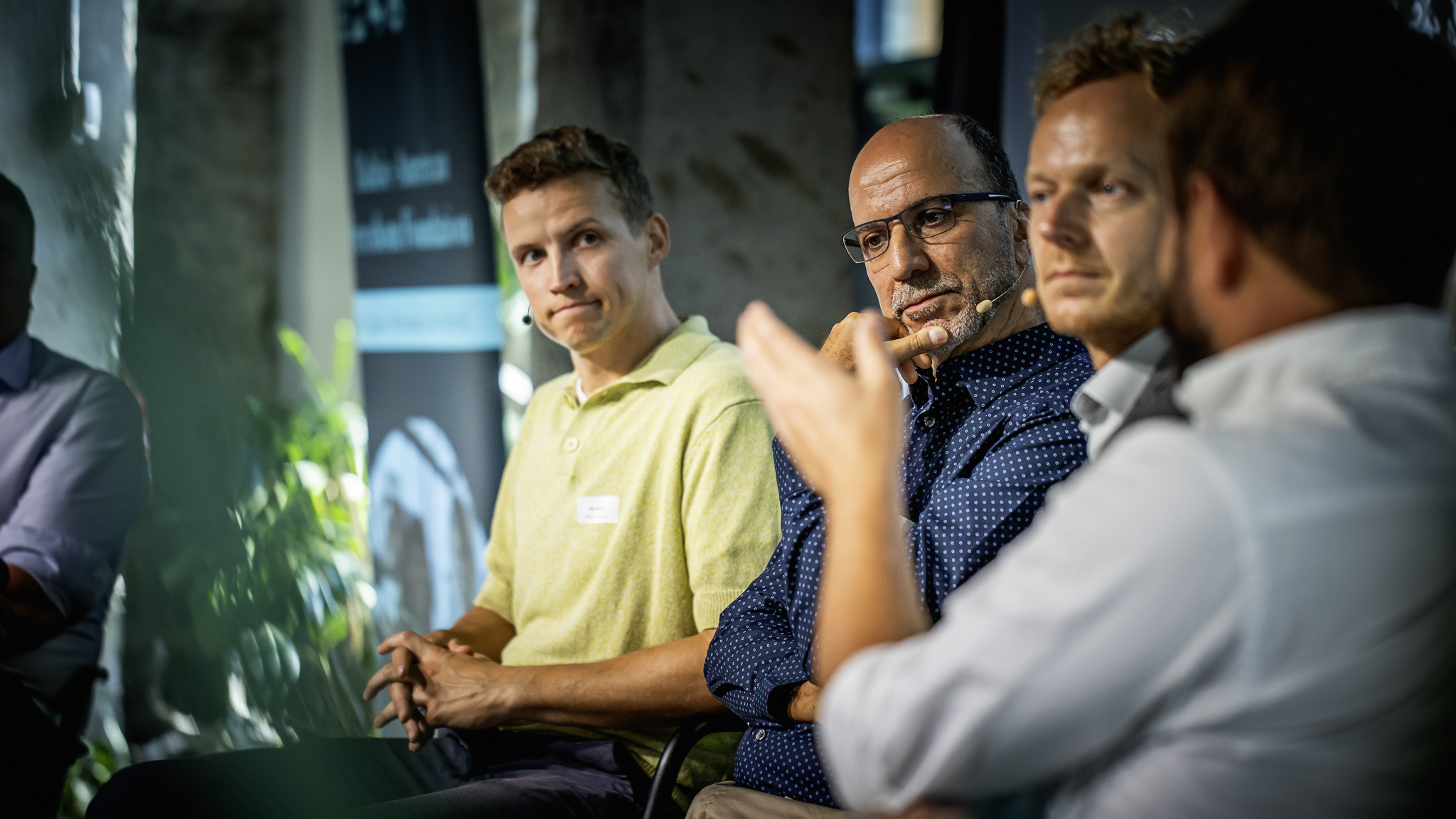
The company has ambitious growth plans for the following years, as they have strategically evaluated additional potential. “One direction is to grow organically, and the other is to innovate, find new and emerging technologies to merge with,” Albre described. Nortal has positioned itself to be a solution provider for clients who aim to reach the level of digital sophistication of Estonia, as Albre confirmed by bringing examples of case studies from different countries. Nortal continues to invest in innovation and sees the most potential in personalized services, cybersecurity and AI.

















